Historically, women were discouraged and even formally excluded from aspiring to careers as scientists. Despite the bias and odds stacked against them, they have made collective contributions that far exceed the opportunities afforded them. This is especially true in the field of cancer immunotherapy.
For this Women’s History Month, we wish to highlight a small sample of the Cancer Research Institute (CRI)’s female pioneers who have played, and continue to play, pivotal roles in this revolution in cancer care.
The Founding of CRI
Without women, CRI wouldn’t exist.
Helen Coley Nauts—the daughter of prominent late-19th century surgeon Dr. William B. Coley, the Father of Cancer Immunotherapy—founded CRI in 1953 at a time when few believed her father’s ideas had any merit. Almost everyone, even those close to her, questioned her decision to devote so much time and energy to validating his ideas. Nevertheless, she embarked on this potentially quixotic quest.
Without a college degree or scientific training, Nauts compiled a comprehensive case history of patients with cancer who had been treated with her father’s therapy, as well as everything that was known up to that point concerning the relationship between natural infection and cancer regression. Ultimately, this led to the creation of nineteen monographs that, in the words of Dr. Lloyd J. Old, the “Father of Modern Tumor Immunology,” constitute “invaluable encyclopedias of knowledge that record the world’s literature on the subject from antiquity.” On November 19, 1997, Nauts received the Gold Medal for “distinguished service to humanity” from The National Institute of Social Sciences. The most recent woman in the medical field to receive the award was Marie Curie in 1921 for the isolation and characterization of radium. (To this day, Curie remains the only person ever to win two Nobel Prizes in two different fields.)
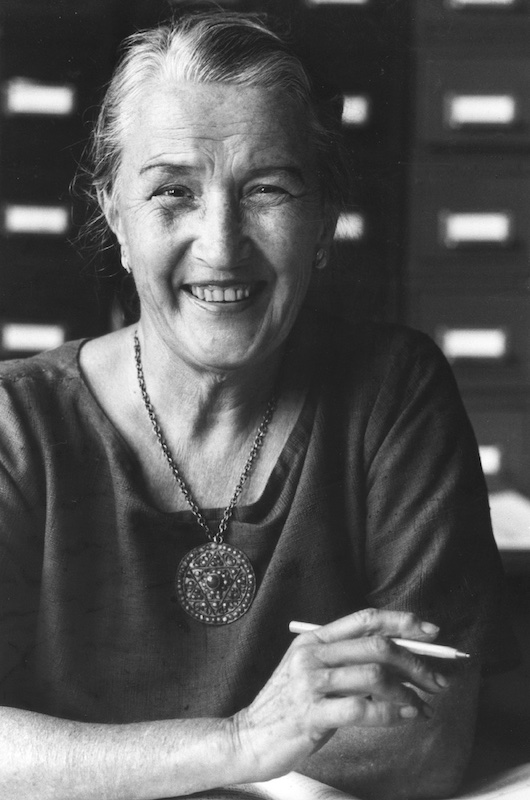
Without Nauts’ contributions—and those of thousands of CRI scientists that her efforts enabled—we likely wouldn’t have our current understanding of the relationship between cancer and the immune system, nor would we have so quickly developed the immunotherapies that are saving lives today.
Immunotherapy’s Coming of Age
In the 1980s, three scientists – Anjana Rao, Ph.D., Jill O’Donnell-Tormey, Ph.D., and Nina Bhardwaj, M.D., Ph.D.—received their first support from CRI as postdoctoral fellows. Additionally, Ellen Puré, Ph.D., and Laurie H. Glimcher, Ph.D., have played key roles in maintaining CRI’s thought leadership in the field as well as directing support to promising young scientists in cancer and immunology. All have enjoyed long relationships with CRI that have made a significant impact on the course of our organization over the decades.
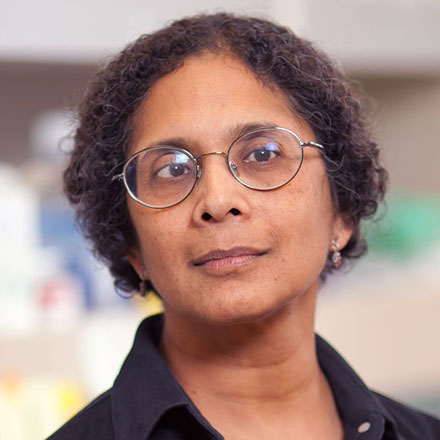 From 1981-1983, Anjana Rao, Ph.D., received CRI funding while she was at the Dana-Farber Cancer Institute, and then again from 1986-1989. Now a full professor at the La Jolla Institute Center for Autoimmunity and Inflammation, Rao’s work focuses on understanding the role of gene transcription factors in cellular differentiation and function, particularly in immune cells, and has provided a foundation for current immunology research and immunotherapy strategies. In recognition of these contributions, she received CRI’s Frederick W. Alt Award for New Discoveries in Immunology in 2009, and is now a member of the CRI Scientific Advisory Council. She has also sponsored thirteen CRI fellows of her own.
From 1981-1983, Anjana Rao, Ph.D., received CRI funding while she was at the Dana-Farber Cancer Institute, and then again from 1986-1989. Now a full professor at the La Jolla Institute Center for Autoimmunity and Inflammation, Rao’s work focuses on understanding the role of gene transcription factors in cellular differentiation and function, particularly in immune cells, and has provided a foundation for current immunology research and immunotherapy strategies. In recognition of these contributions, she received CRI’s Frederick W. Alt Award for New Discoveries in Immunology in 2009, and is now a member of the CRI Scientific Advisory Council. She has also sponsored thirteen CRI fellows of her own.
Next, in 1983, Jill O’Donnell-Tormey, Ph.D., of The Rockefeller University, began her CRI postdoctoral fellowship in immunology under Carl F. Nathan, Ph.D., who is currently an associate director of the CRI Scientific Advisory Council. In 1987, a year after she finished, O’Donnell-Tormey joined the staff of CRI. Six short years later, she became CRI’s chief executive officer, a position she still holds in addition to director of scientific affairs. Since then, the leadership and strategic vision of this 2013 Alt Award recipient have been a driving force in forging collaborative research and in building an unparalleled infrastructure to translate immunology discoveries from the lab and into the clinic—and the spotlight. Aside from Helen Coley Nauts, there may be no woman more important in the history of CRI than she.
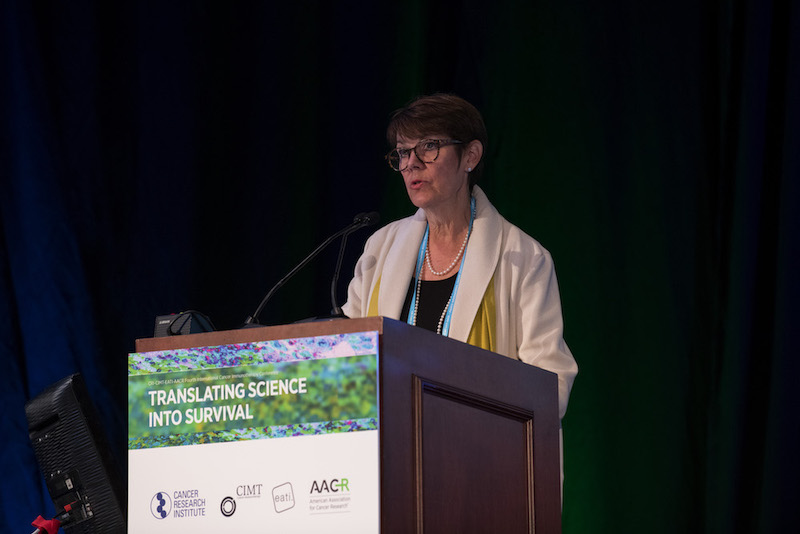
Jill O'Donnell-Tormey, Ph.D., speaking at CICON18. Photo by Arthur N. Brodsky, Ph.D.
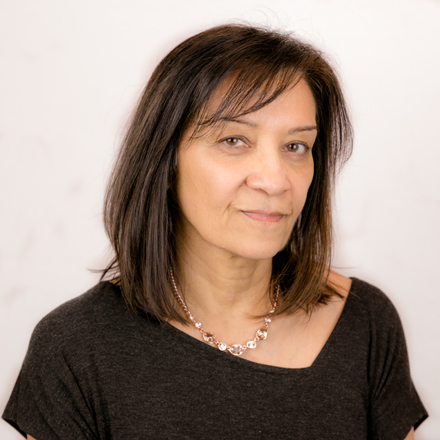 Two years after O’Donnell-Tormey, Nina Bhardwaj, M.D., Ph.D., was also funded as a CRI fellow at The Rockefeller University. Here, under the tutelage of dendritic cell pioneer, CRI grantee, and Nobel Laureate Ralph Steinman, M.D., she would become a dendritic cell expert in her own right. Since then, Bhardwaj has been supported by CRI numerous times, including as a CLIP Investigator and the leader of a current CRI-funded trial testing the combination of checkpoint immunotherapies and an in situ vaccine. Currently, Bhardwaj holds several roles at the Icahn School of Medicine at Mt. Sinai, including the director of immunotherapy, medical director of the Vaccine and Cell Therapy Laboratory, co-director of the Cancer Immunology Program, the Ward Coleman Chair in Cancer Research, and a professor of medicine and urology. Overall, her important work on dendritic cells earned her the 2015 Alt Award, and Bhardwaj is also now a member of the CRI Scientific Advisory Council as well as the CRI Clinical Accelerator Clinical and Scientific Advisory Committee.
Two years after O’Donnell-Tormey, Nina Bhardwaj, M.D., Ph.D., was also funded as a CRI fellow at The Rockefeller University. Here, under the tutelage of dendritic cell pioneer, CRI grantee, and Nobel Laureate Ralph Steinman, M.D., she would become a dendritic cell expert in her own right. Since then, Bhardwaj has been supported by CRI numerous times, including as a CLIP Investigator and the leader of a current CRI-funded trial testing the combination of checkpoint immunotherapies and an in situ vaccine. Currently, Bhardwaj holds several roles at the Icahn School of Medicine at Mt. Sinai, including the director of immunotherapy, medical director of the Vaccine and Cell Therapy Laboratory, co-director of the Cancer Immunology Program, the Ward Coleman Chair in Cancer Research, and a professor of medicine and urology. Overall, her important work on dendritic cells earned her the 2015 Alt Award, and Bhardwaj is also now a member of the CRI Scientific Advisory Council as well as the CRI Clinical Accelerator Clinical and Scientific Advisory Committee.
While not a former CRI fellow, another scientist who has been an important part of CRI for decades is Ellen Puré, Ph.D., of the University of Pennsylvania. She joined the CRI Scientific Advisory Council in 1989, and in 2003 was elevated to associate director. That same year, she also became the chair of the CRI Irvington Postdoctoral Fellowship Review Committee. As CRI’s longest-running program, these fellowships have been awarded to more than 1,400 people to date, and have provided crucial support to early-stage scientists with the goal of empowering them to pursue careers in immunology. Puré, whose work investigates the role of fibroblasts and stroma in cancer, is currently the director of the Penn Vet Cancer Center, the chair and Grace Lansing Lambert Professor of Biomedical Science at the University of Pennsylvania School of Veterinary Medicine. She has also sponsored seven CRI fellows of her own.
.jpg)
Ellen Puré, Ph.D., of the University of Pennsylvania, speaking at CICON19. photo by Arthur N. Brodsky, Ph.D.
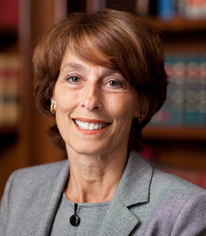 Laurie Glimcher, Ph.D., a member of the CRI Scientific Advisory Council and the current president and chief executive officer of the Dana-Farber Cancer Institute, has a relationship with CRI going back to 1986, when she sponsored her first of five CRI fellows. (One of them, Juan R. Cubillos-Ruiz, Ph.D., has since gone on to become a CRI CLIP Investigator and a sponsor of his own CRI fellow, extending Glimcher’s direct impact to a second generation of CRI scientists.) Throughout her career, Glimcher has made significant discoveries regarding key transcription factors that drive the development and activation of various immune cell lineages. For these contributions, she was honored with the 2012 William B. Coley Award for Distinguished Research in Immunology and Tumor Immunology. In addition to serving as president and CEO of Dana-Farber (one of only a few female heads of NCI-designated Comprehensive Cancer Centers in the United States), Glimcher is also the Richard and Susan Smith Professor of Medicine at Harvard Medical School, as well as a member of the National Academy of Sciences, a fellow of the American Academy of Arts and Sciences, a member of the National Academy of Medicine, and the former president of the American Association of Immunologists.
Laurie Glimcher, Ph.D., a member of the CRI Scientific Advisory Council and the current president and chief executive officer of the Dana-Farber Cancer Institute, has a relationship with CRI going back to 1986, when she sponsored her first of five CRI fellows. (One of them, Juan R. Cubillos-Ruiz, Ph.D., has since gone on to become a CRI CLIP Investigator and a sponsor of his own CRI fellow, extending Glimcher’s direct impact to a second generation of CRI scientists.) Throughout her career, Glimcher has made significant discoveries regarding key transcription factors that drive the development and activation of various immune cell lineages. For these contributions, she was honored with the 2012 William B. Coley Award for Distinguished Research in Immunology and Tumor Immunology. In addition to serving as president and CEO of Dana-Farber (one of only a few female heads of NCI-designated Comprehensive Cancer Centers in the United States), Glimcher is also the Richard and Susan Smith Professor of Medicine at Harvard Medical School, as well as a member of the National Academy of Sciences, a fellow of the American Academy of Arts and Sciences, a member of the National Academy of Medicine, and the former president of the American Association of Immunologists.
The Future of Immunotherapy
More recently, CRI has formed intimate relationships with other high-profile women scientists in the fields of immunology and immunotherapy, and each continues to play an important role in advancing these domains and medicine in general.
Padmanee Sharma, M.D., Ph.D., of the University of Texas MD Anderson Cancer Center, was first funded by CRI in 2012 through our Cancer Vaccine Collaborative, a predecessor of CRI’s Anna-Maria Kellen Clinical Accelerator today. She currently leads a CRI clinical trial exploring how the presence of “killer” T cells within tumors might enable doctors to predict a patient’s likelihood of responding to immunotherapy. She is currently the scientific director for the Immunotherapy Platform and a professor in the departments of Genitourinary Medical Oncology and Immunology at MD Anderson.
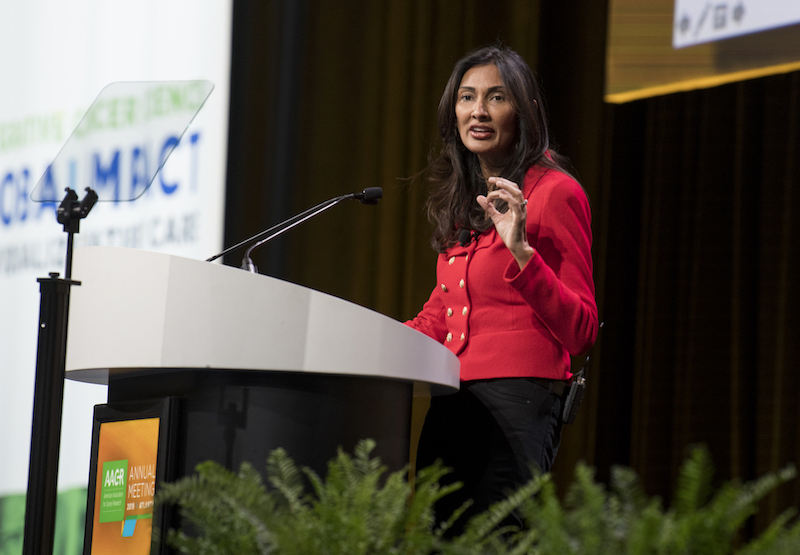
Padmanee Sharma, M.D., Ph.D., of the University of Texas MD Anderson Cancer Center. Photo by Arthur N. Brodsky, Ph.D.
As the Mount Sinai Endowed Chair in Cancer Immunology, the director of the Precision Immunology Institute, the director of the Mount Sinai Human Immune Monitoring Center, and the co-leader of the Cancer Immunology Program at The Mount Sinai Tisch Cancer Institute at the Icahn School of Medicine, Miriam Merad, M.D., Ph.D., has greatly advanced our understanding of the immune system’s macrophages and dendritic cells. In particular, she has revealed insights into how their development and identities are regulated, and how cancer and inflammation can impact their homeostasis. Most recently, Merad, who is an elected member of the National Academy of Sciences, also played a central role in New York City’s response to the COVID-19 pandemic, and shared her insights during our June COVID-19 livestream event. (CRI Tech Impact grantee Brian D. Brown, Ph.D., offered high praise when discussing Merad’s leadership during the crisis.) She has sponsored one CRI fellow.
.JPG)
Miriam Merad, M.D, Ph.D., of the Icahn School of Medicine at Mt. Sinai, accepting the 2018 William B. Coley Award. Photo by Arthur N. Brodsky, Ph.D.
Sharma and Merad, both members of the CRI Scientific Advisory Council and elected members of the American Society of Clinical Investigation, shared CRI’s 2018 William B. Coley Award. Sharma is also a member of the CRI Clinical Accelerator’s Clinical and Scientific Advisory Committee.
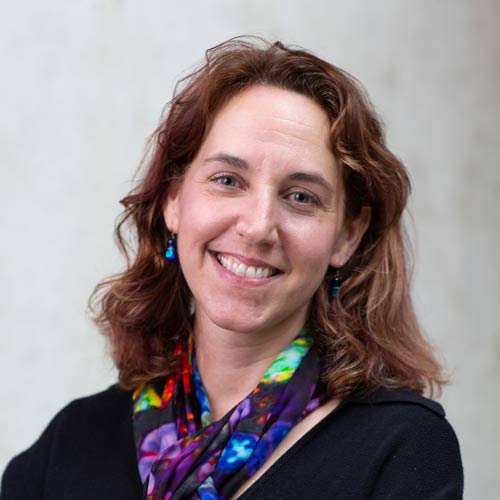 Susan M. Kaech, Ph.D., is another longtime CRI scientist. First funded in 2009 through a CRI Investigator Award, Kaech has since received support for her research—which seeks to identify the mechanisms that govern the formation of long-lived memory T cells—through two CRI CLIP grants. Kaech, now a member of the CRI Scientific Advisory Council, is currently the director of the NOMIS Center for Immunobiology and Microbial Pathogenesis, and the NOMIS Chair at the Salk Institute for Biological Studies.
Susan M. Kaech, Ph.D., is another longtime CRI scientist. First funded in 2009 through a CRI Investigator Award, Kaech has since received support for her research—which seeks to identify the mechanisms that govern the formation of long-lived memory T cells—through two CRI CLIP grants. Kaech, now a member of the CRI Scientific Advisory Council, is currently the director of the NOMIS Center for Immunobiology and Microbial Pathogenesis, and the NOMIS Chair at the Salk Institute for Biological Studies.
CRI is also supporting three new “STARs” of cancer immunotherapy research—Yvonne Chen, Ph.D., Amanda W. Lund, Ph.D., and Andrea Schietinger, Ph.D.—through our newest and most prestigious funding program for mid-career scientists: the Lloyd J. Old STAR program. Chen, an associate professor in the Department of Chemical and Biomolecular Engineering at the University of California, Los Angeles (UCLA) and member of the UCLA Jonsson Comprehensive Cancer Center, is using sophisticated genetic engineering technologies to create superior T cell therapies against cancer, including CAR T cells.
.jpg)
Yvonne Chen, M.D., Ph.D. of UCLA. Photo by Reed Hutchinson
Meanwhile, Lund, an associate professor in the Departments of Dermatology and Pathology as well as a member of Perlmutter Cancer Center at NYU Langone Health, is characterizing our complex lymphatic system and how it influences both cancer metastasis and successful anti-tumor immune responses.
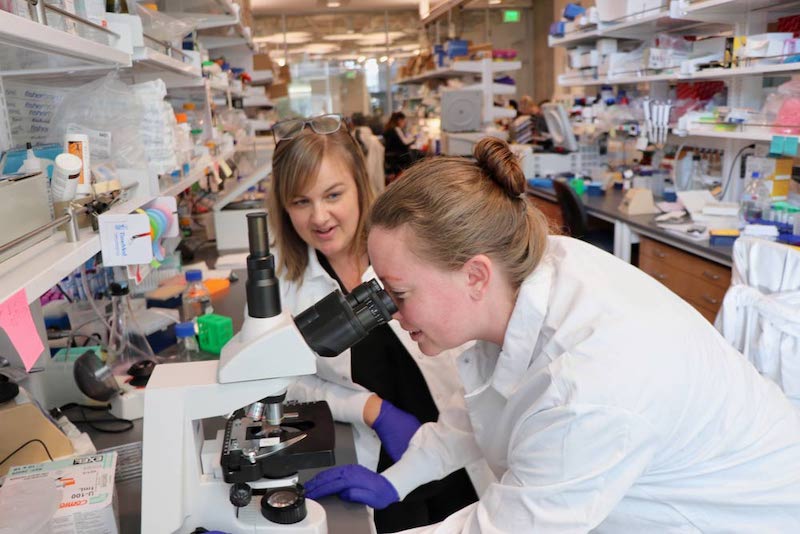
Amanda Lund, Ph.D., of the Perlmutter Cancer Center at NYU Langone Health
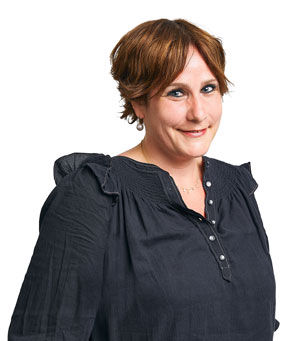 Like Chen, Schietinger—an assistant professor of immunology and microbial pathogenesis as well as an assistant member in the immunology program at Memorial Sloan Kettering Cancer Center—is focuses with T cells. Specifically, she’s characterizing the various subsets and their different capabilities at different stages of development, in order to determine how we might utilize them more effectively against cancer.
Like Chen, Schietinger—an assistant professor of immunology and microbial pathogenesis as well as an assistant member in the immunology program at Memorial Sloan Kettering Cancer Center—is focuses with T cells. Specifically, she’s characterizing the various subsets and their different capabilities at different stages of development, in order to determine how we might utilize them more effectively against cancer.
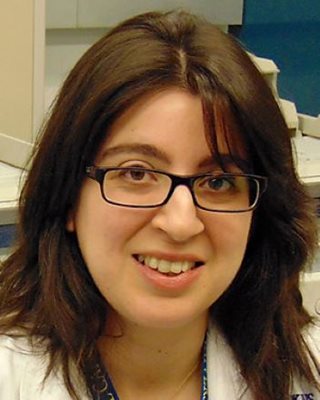 Valsamo ‘Elsa’ Anagnostou, M.D., Ph.D., of the Sidney Kimmel Comprehensive Cancer Center at Johns Hopkins Medicine, is leading one of CRI’s most cutting-edge clinical endeavors. As the principal investigator on this CRI-funded trial, she is evaluating how blood tests might be able to provide doctors with important information about patients’ cancers and immune systems. This, in turn, could be used to monitor patients who have already received immunotherapy or predict which treatments might work best for a given patient, among other potential uses. Anangnostou will discuss the importance of these blood-based tests and their applications in immunotherapy during our CRI webinar on March 24.
Valsamo ‘Elsa’ Anagnostou, M.D., Ph.D., of the Sidney Kimmel Comprehensive Cancer Center at Johns Hopkins Medicine, is leading one of CRI’s most cutting-edge clinical endeavors. As the principal investigator on this CRI-funded trial, she is evaluating how blood tests might be able to provide doctors with important information about patients’ cancers and immune systems. This, in turn, could be used to monitor patients who have already received immunotherapy or predict which treatments might work best for a given patient, among other potential uses. Anangnostou will discuss the importance of these blood-based tests and their applications in immunotherapy during our CRI webinar on March 24.
At the moment, CRI is supporting 62 women scientists in immunology and tumor immunology. Collectively, their perspectives and insights will undoubtedly impact these ever-advancing fields, and they are poised to play important roles in ushering in the next generation of immune-based technologies and immunotherapies. Thanks to their intellect and efforts, we are close to cures for more cancers than ever before.